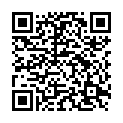|
|
|
| Module code: WIBASc415 |
|
|
2V+2U (4 hours per week) |
|
5 |
| Semester: 4 |
| Mandatory course: yes |
Language of instruction:
German |
Assessment:
Written exam
[updated 02.07.2019]
|
WIBASc415 (P450-0020) Industrial Engineering, Bachelor, ASPO 01.10.2013
, semester 4, mandatory course
|
60 class hours (= 45 clock hours) over a 15-week period.
The total student study time is 150 hours (equivalent to 5 ECTS credits).
There are therefore 105 hours available for class preparation and follow-up work and exam preparation.
|
Recommended prerequisites (modules):
WIBASc115 Principles of Business Administration I (BWL I)
WIBASc315 Cost Accounting
[updated 20.01.2020]
|
Recommended as prerequisite for:
|
Module coordinator:
Prof. Dr. Andy Junker |
Lecturer:
Prof. Dr. Stefan Georg
Prof. Dr. Andy Junker
Lehrbeauftragte
[updated 20.01.2020]
|
Learning outcomes:
Controlling:
After successfully completing this module students will:
_ have mastered the goals and tasks of controlling
_ be able to read and create reports
_ be familiar with the structure of liquidity statements and budgeting
_ be able to describe controlling instruments and interpret the significance of key figures
_ be able to describe the structure of a balanced scorecard and create individual perspectives of a balanced scorecard
Accounting:
After successfully completing this module students will:
_ have basic knowledge of German accounting
_ understand the relationships between accounting, balance sheets and earning reports
_ understand when an asset/liability should be balanced and at what value
_ be able to apply the knowledge acquired in this course to analyze a financial statement
_ be able to describe significant differences to international and consolidated accounting
[updated 02.07.2019]
|
Module content:
Controlling:
1. Objectives of controlling
2. Controlling in the framework of company activities
3. Basic controlling tasks
4. Information systems/reporting and liquidity planning
5. Planning tools/budgeting and special areas of application of contribution margin accounting
6. Control instruments/key figures and key figure systems
7. Management instruments/balanced scorecard
The basic theory of all the above aspects will be presented and practiced on the basis of small tasks.
Accounting:
1. Principles of proper accounting
2. Do you balance?
3. Which value do you balance?
4. Where do you balance?
5. Structure of an earnings report
6. Notes
7. Main features of an annual account policy and analysis
8. Main features of consolidated accounting and international accounting
[updated 02.07.2019]
|
Teaching methods/Media:
Controlling:
Regularly revised lecture notes will be available for this course: Georg, S.: Anwendungsorientiertes Controlling, 2. Auflage, Mandarin-Verlag 2011.
Accounting:
A regularly revised script and exercises will be available for this course.
[updated 02.07.2019]
|
Recommended or required reading:
Controlling:
_ Britzelmaier: Wertorientierte Unternehmensführung, 2009.
_ Georg: Die Balanced Scorecard als Controlling- und Managementsystem, Aachen 1999.
_ Georg: Controlling im Mittelstand, Aachen 2003.
_ Horváth.: Controlling, 11. Auflage, München 2009.
_ Jung: Arbeitsbuch Controlling, München 2010.
_ Reichmann: Controlling mit Kennzahlen und Managementberichten, 5. Auflage, München 1997.
_ Vollmuth.: Controlling-Instrumente von A-Z,5. Auflage, München 2000.
_ Ziegenbein: Controlling, 9. Auflage, 2007.
Accounting:
_ Baetge, Jörg; Kirsch, Hans-Jürgen; Thiele, Stefan: Bilanzen, 11. Aufl., Idw-Verlag, Düsseldorf 2011
_ Bieg, Hartmut; Kussmaul, Heinz: Externes Rechnungswesen, 6. Aufl., Oldenbourg Wissenschaftsverlag, München 2012
_ Federmann, Rudolf: Bilanzierung nach Handelsrecht, Steuerrecht und IAS/IFRS, 12. Aufl., Berlin 2010
_ Wöhe, Günter/Kußmaul, Heinz: Grundzüge der Buchführung und Bilanztechnik, 8. Aufl., Verlag Vahlen München 2012.
[updated 02.07.2019]
|

